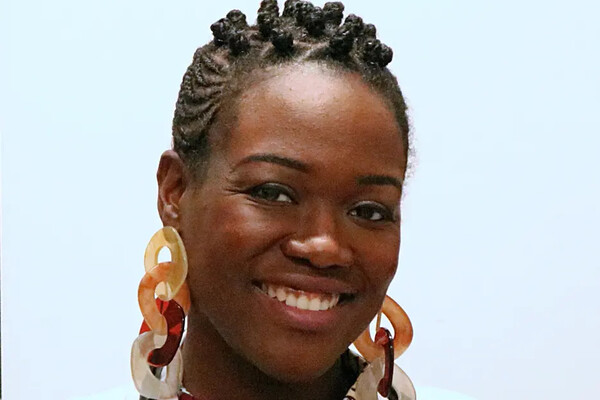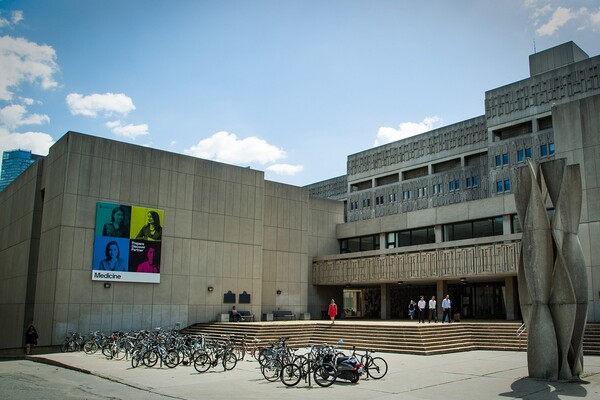Applying Lessons Learned to Advance Diversity

 For more than 20 years, the Faculty of Medicine has been working to address the chronic under-representation of Black students in our medical program. As you will see in this issue of MedEmail, we’re launching a new application pathway that is built firmly on decades of committed work to expand the pool of Black applicants through initiatives like the Summer Mentorship Program (SMP). This program, which began in 1994, gives high school students of Indigenous or African ancestry a chance to explore health sciences at the University of Toronto over four weeks in July. By increasing awareness about career opportunities in health professions, we seek to encourage more applications. More than 800 students have participated in the program since it was established.
For more than 20 years, the Faculty of Medicine has been working to address the chronic under-representation of Black students in our medical program. As you will see in this issue of MedEmail, we’re launching a new application pathway that is built firmly on decades of committed work to expand the pool of Black applicants through initiatives like the Summer Mentorship Program (SMP). This program, which began in 1994, gives high school students of Indigenous or African ancestry a chance to explore health sciences at the University of Toronto over four weeks in July. By increasing awareness about career opportunities in health professions, we seek to encourage more applications. More than 800 students have participated in the program since it was established.
More recently we launched Community of Support (COS) which supports primarily university students who are considering applying to medicine. It gives participants access to mentors (medical students, physicians) and experiences (shadowing, research, health advocacy) provided by the Office of Health Professions Student Affairs (OHPSA), the Black Medical Students' Association (BMSA) and the Black Physicians Association of Ontario (BPAO). We also deliver admissions information and invitations to open house events, as well as guidance on the application process (MCAT, personal statements, mock interviews) led by current University of Toronto medical students. Currently over 500 students across Canada are enrolled in COS, and the first cohort of COS students began their first year of medical school in Ontario Universities this fall.
Leading these efforts has been the OHSPA, particularly Ike Okafor and La Toya Dennie, and Enrolment Services, including Director of MD Admissions and Student Finances Dr. David Latter and his predecessor Dr. Mark Hanson, and Jessie Metcalfe, Associate Registrar, Enrolment Management, and Drs. Renee Beach and Onye Nnorom from the BPAO.
These efforts have yielded some great successes. In this issue of the MedEmail, you’ll read about Dr. Husam Abdel-Qadir, a cardiologist at Women’s College Hospital and PhD candidate at the Institute for Clinical Evaluative Sciences at U of T. He credits his participation in SMP with sparking his interest in medicine. Yet, for all of the great examples we can identify, Black students are still under-represented in our medical program, far below the 8.4 per cent of Toronto’s population that identifies as Black.
That’s a problem. There is a growing body of literature that tells us diversity in medicine results in better medicine. For example, greater diversity in medical classes leads to doctors with a greater ability and sensitivity to serving diverse communities. Ensuring that many different ethnic and racial groups are represented within the profession also broadens the scope of care and concern for unique health conditions that affect specific populations. We need to take further steps to address this issue, not simply because it’s a good thing for us to do — though that wouldn’t be the worst reason — but to advance our medical education.
As we consider how best to do that, we can look to a successful model we have developed and implemented: the Indigenous Student Application Program (ISAP). Since that program was launched in the 2012-2013 academic year, we have seen an increase in the number of applications from Indigenous students. We have done that by creating a new application pathway – just as we have a different pathway for MD/PhD students — that has been able to evaluate applicants through a culturally sensitive process. As a result, we have been able to better identify outstanding Indigenous students while not lowering our standards or establishing quotas. It has ensured we are not sacrificing excellence to achieve diversity, but are embracing diversity to achieve excellence.
Given the success of that model, I am pleased to note the launch today of the Black Student Application Program (BSAP), which will create a new application pathway for students who self-identify as Black. Just like with the ISAP stream, BSAP will not have designated seats. And, Black student applicants who choose not to participate in this program are still eligible for admission through the general application process. But we believe that BSAP will provide a welcoming and culturally safe admissions process for Black student applicants. This will include the participation of Black faculty members from the Faculty of Medicine and other areas within the University of Toronto, Black medical students and Black community members in all stages of Black medical student selection.
Though the process might be slightly different, the standards won’t change. The admission requirements — such as MCAT scores, GPA and course prerequisites — are the same for students who apply through BSAP as they are for all other available streams.
I want to thank the many individuals who have been involved in the development of this new program — including those within the Faculty like the Admissions Committee and the University of Toronto Black Medical Students’ Association, as well as from organizations like the Black Physicians Association of Ontario and Black Health Alliance. These broad consultations have given us a better understanding of the associated issues, and renewed our commitment to addressing them.
There is no single solution to fixing the problem of the under-representation of different racial and ethnic groups in medicine. We also don’t think our only challenge is to address the under-representation of Black and Indigenous students in our program. Ensuring equity in medicine is a complex and long-term effort, and as Dr. Lisa Robinson recently discussed, it’s one that we need to address in a variety of ways. By establishing BSAP, we are taking another step forward, rooted in the lessons we’ve learned, but all too aware that more work lays ahead. We will remain committed to diversity, because we cannot achieve excellence without it.
Should you have questions about the new BSAP stream, I would invite you to contact Enrolment Services.
Trevor Young
Dean, Faculty of Medicine
Vice-Provost, Relations with Health Care Institutions
News


